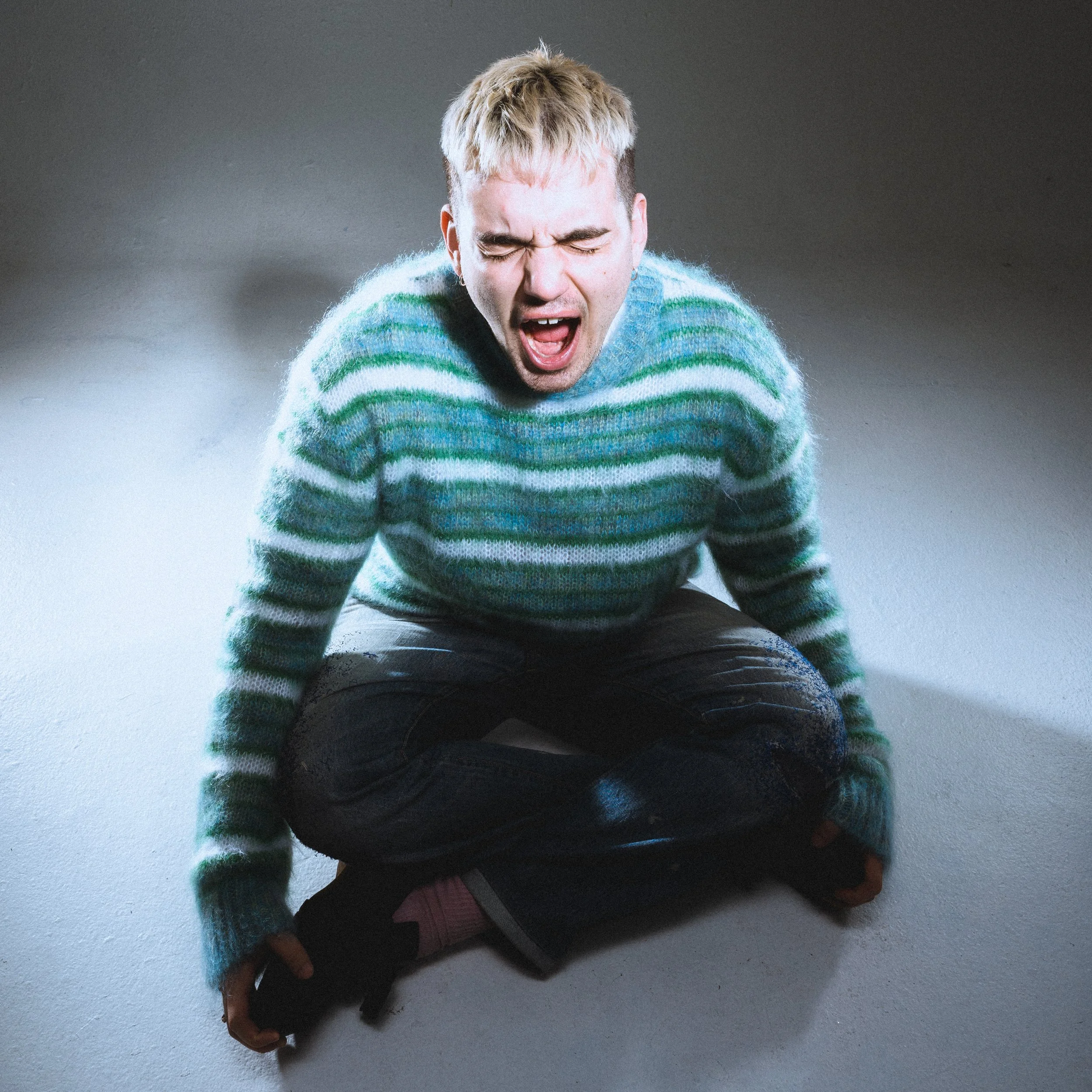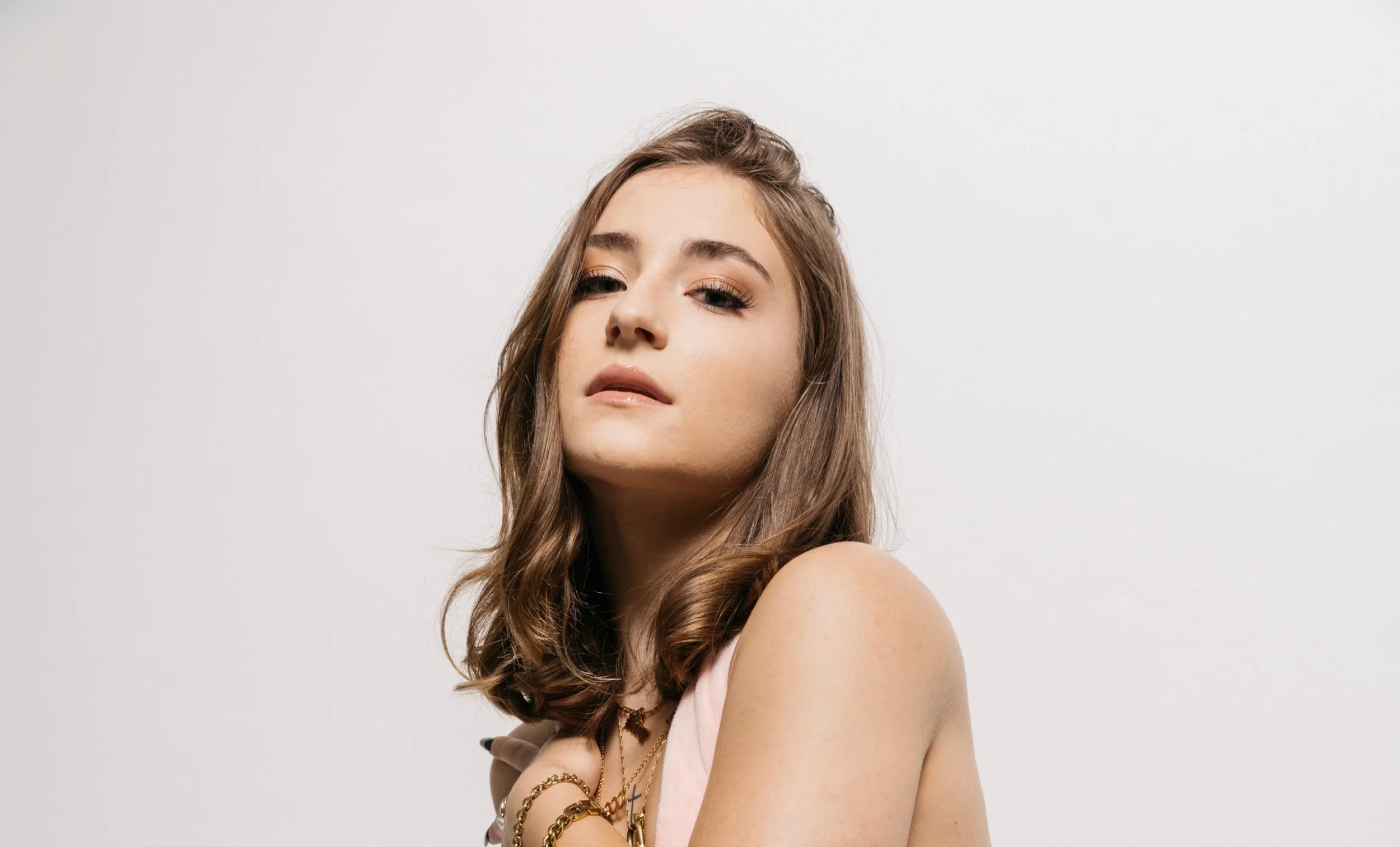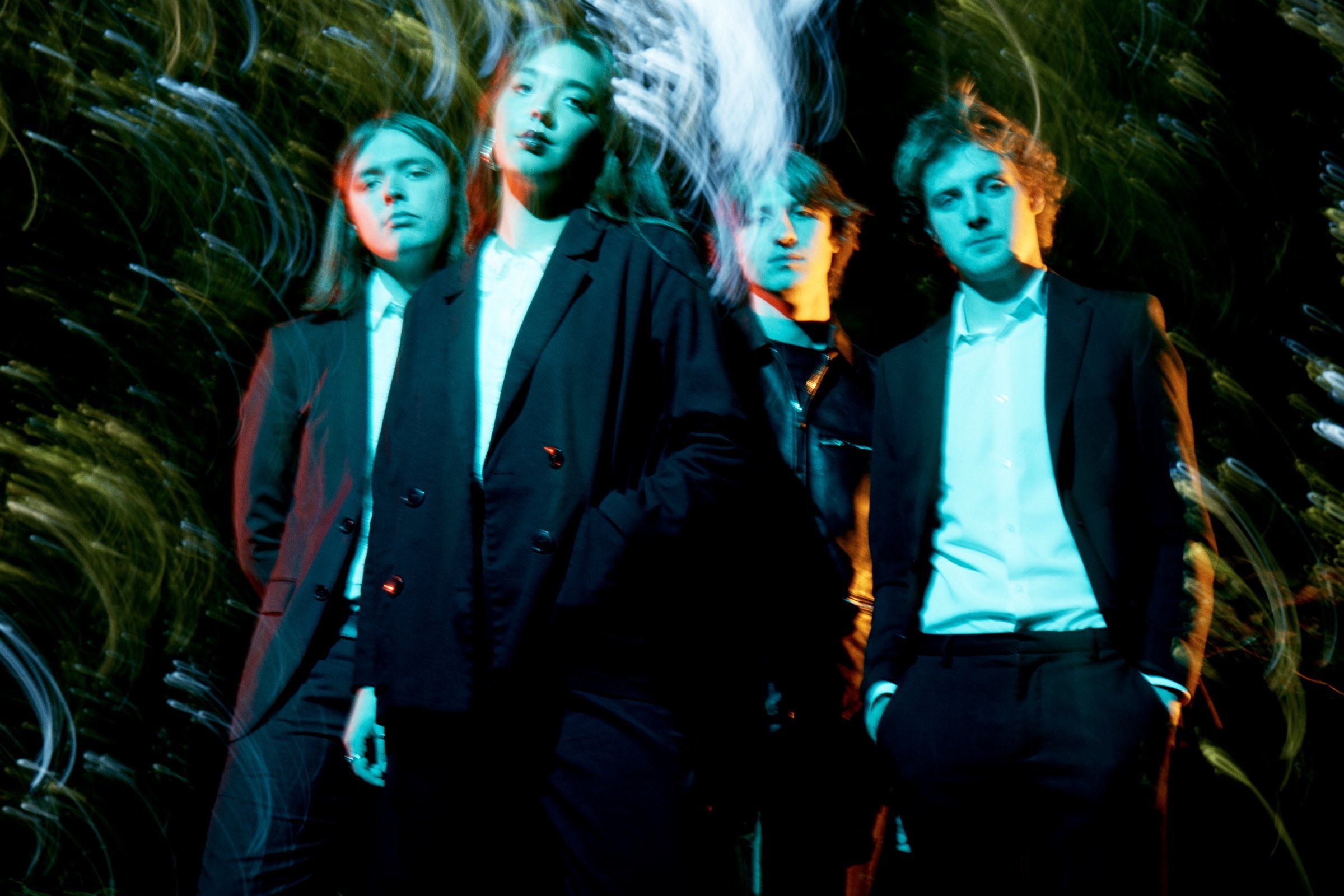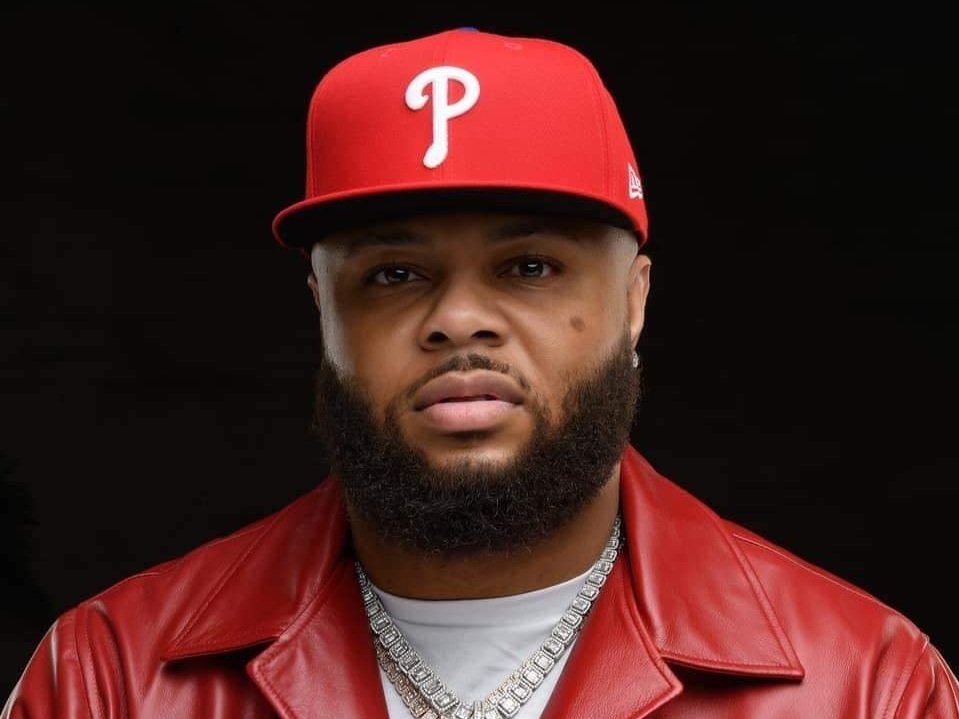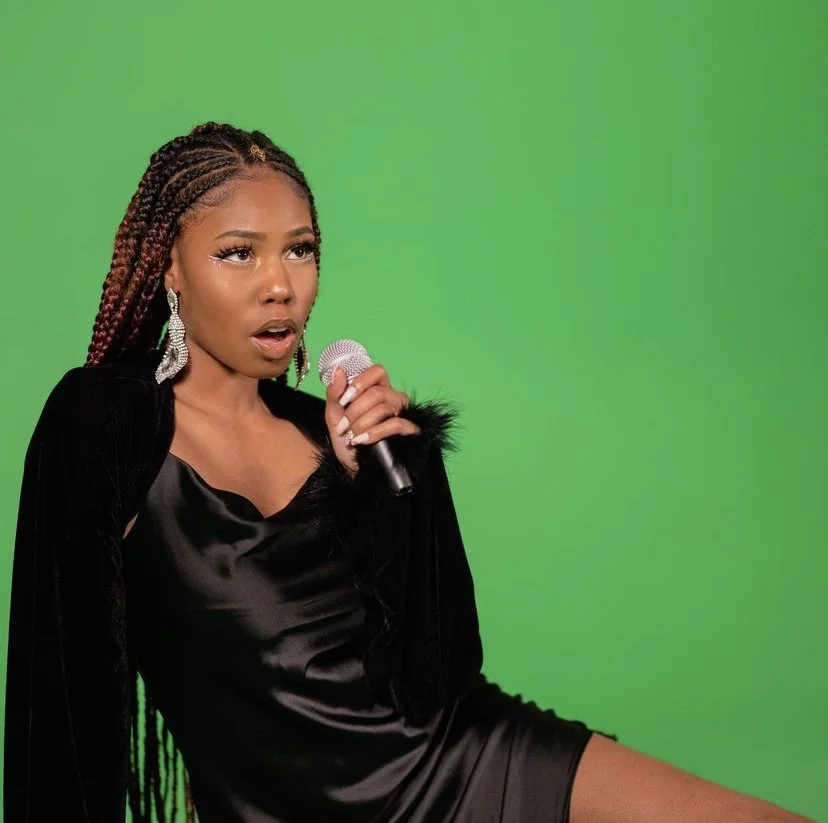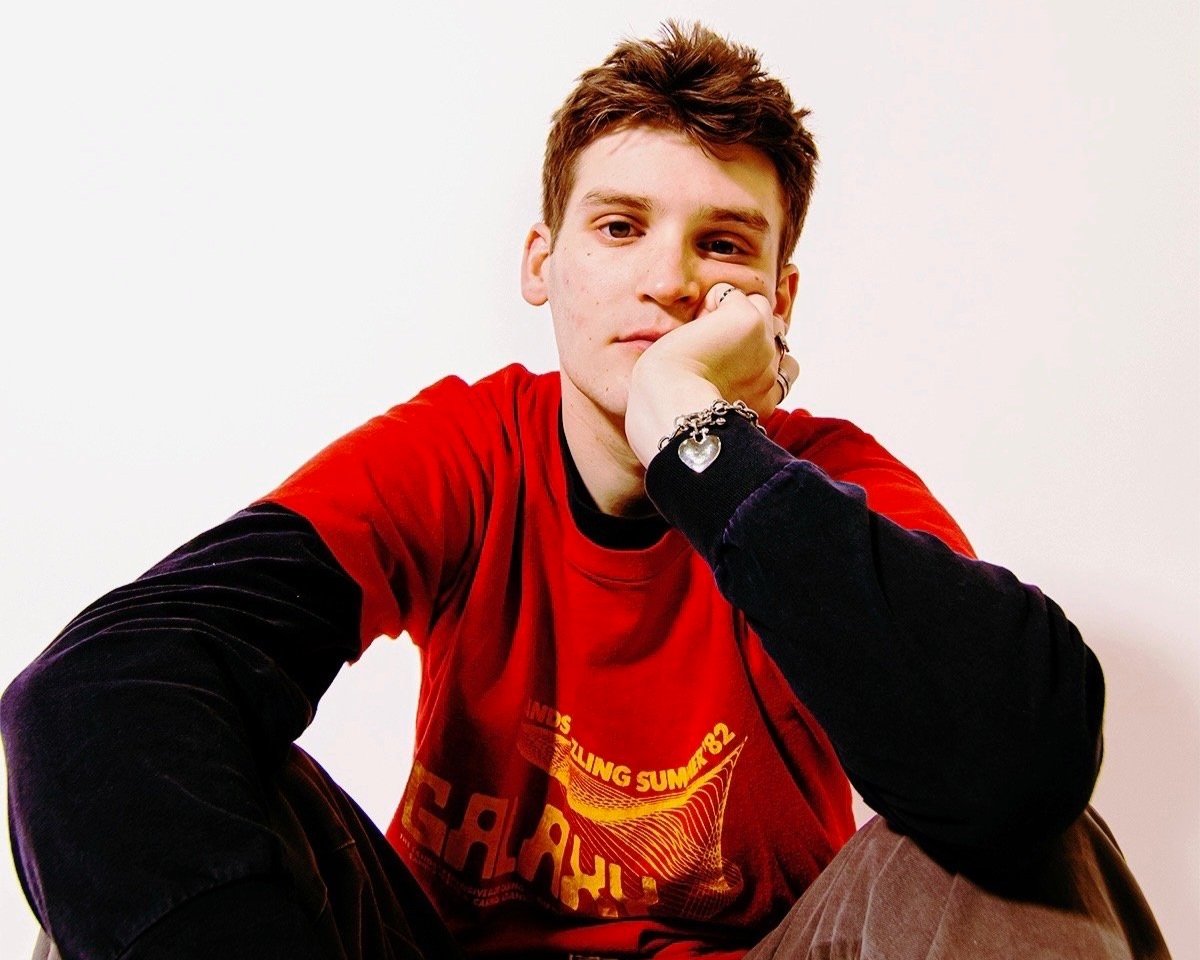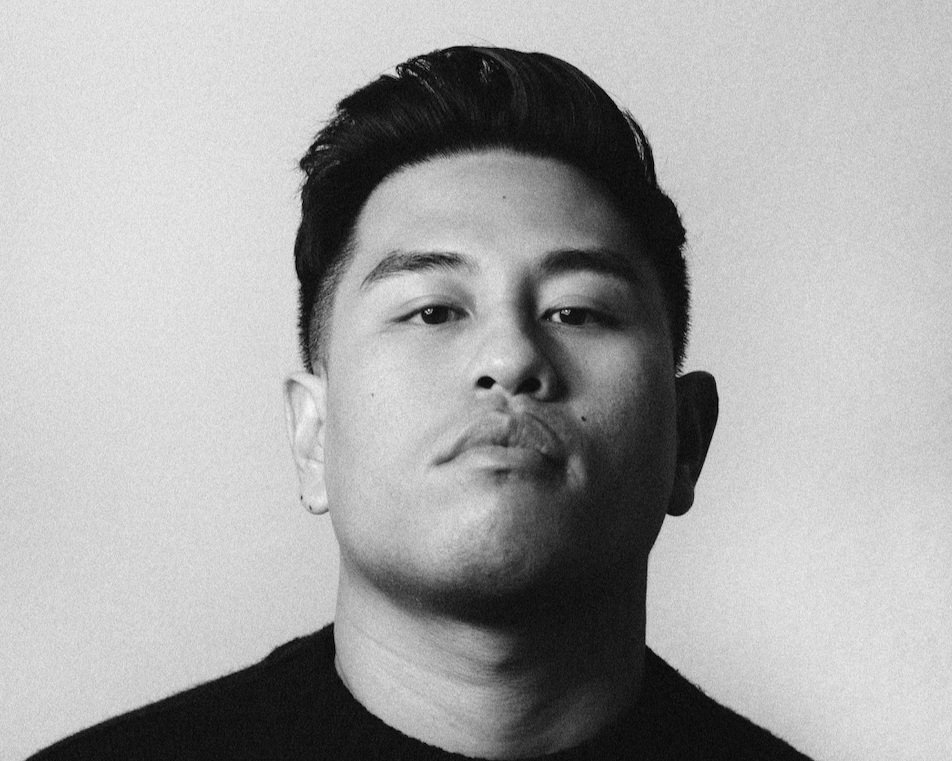In “Fiji”, “lea Michele”, and beyond, New York’s Hadji Gaviota’s range takes center stage
While listening through Hadji Gaviota’s discography, one thing in particular stands out: the quality of the music is consistently top-tier, but the risk-taking increases with each release. He has managed the rare feat of expanding his horizons without any evidence of growing pains in his work. The unexpected popularity of the 2018 single “Harajuku” motivated Hadji to give his new audience fully fleshed-out concepts, instead of the simple ideas he felt the rest of the album “Captain” offered. With the completion of his next project “Purgatory” coinciding with the rise of the pandemic in 2020, he had plenty of time to perfect the track list. Two years later, “Pastimes” saw Gaviota branching out even further into a more assertive, punk-inspired sound, which he has now embraced as a core element of his style in the “Wallflower” era, released in August 2023. He sees Wallflower as calling back to the eclectic feel of Purgatory, but more refined. The process of putting the album together was easier simply due to him having made more songs to choose from, some dating back to 2021. The tracks that made it on the project were not created with the final concept in mind, but after noticing how well they all fit together, the cohesiveness was undeniable. Since Wallflower, he’s dropped two singles, “Fiji” and “lea michele”, with very different sounds.
Hadji has previously described his music as ‘left-handed’, and when I asked him to elaborate on that, he said his work is similar to things done before, but “a little bit backwards. I’m working within genres that already exist, twisting them in a way that’s interesting, but still able to be played in the car with your friends.”
“Rather than be the guy who explores one sound really deeply, I would prefer to be somebody you’d expect a change in sound but will do a good job and make it all make sense.”
Gaviota realized he wanted to make music while at Penn studying History. Being a good student was fulfilling to him in high school, but getting into a strong college and seeing everyone having their lives planned out to grad school and beyond was alienating. One of the main reasons he pursued a History major was that his parents were both lawyers, and being familiar with the profession from childhood made it seem doable, so he chose a common pre-law degree. But by the time Hadji finished the program, he no longer wanted to continue down that path, and forewent law school. After leaving Penn, he took six months to finish and release some music, including the aforementioned “Harajuku” - still his most-streamed track to date, with over 2 millions plays on Spotify. Through that experience, Gaviota realized that being a musician was a legitimate career possibility for himself. He credits his time at Penn for reinforcing the discipline needed to make it as an independent artist, as he saw many of his business-major peers competing for positions.
Hadji had made music earlier in life, including a mixtape recorded on a Rock Band video game microphone in middle school that essentially no longer exists. It’s not that he stopped wanting to make music in high school, it was more that he wasn’t surrounded by people making music all the time. While at Penn, in realizing he was missing that creative energy, he saw how some of his friends had grown up to take music more seriously, which reinvigorated his artistic spirit. The summer before his senior year of college, he met Mike Mroz through some of his producer friends. Mike is a talented engineer and producer with whom Hadji made Harajuku and a full project no longer on streaming, titled ‘Captain’. Knowing Mike was staying in New York City for a while (Gaviota’s hometown) he decided to take his first job out of college and put his History degree to use in the classroom by way of a Teach For America (TFA) placement in NYC. He had the opportunity to move to Los Angeles for TFA, but felt strongly about his relationship with Mike and that being near was the right move at this stage in his career.
When he was younger, Hadji spent time finding new artists on websites like KanyeToThe, where he discovered acts such as Allan Kingdom, Tobi Lou before he was Tobi Lou, and Kevin Abstract. In his first few years at Penn, he was under the impression that there wasn’t much of a music scene, and had resigned himself to growing his artistic presence online instead until he discovered otherwise. Part of this exposure was his participation in the Jazz and Grooves organization on campus, primarily in booking concerts on campus. He actually helped book Kevin Abstract in late 2016, with Brockhampton releasing All-American Trash earlier in the year and Kevin gearing up to drop American Boyfriend, his first studio album. KanyeToThe also introduced Hadji to an artist named Yeek, whose project Sebastian inspired Gaviota to explore music making beyond rapping and push his sound outside of established genre parameters.
Anyone who’s listened to a Hadji Gaviota song knows that he doesn’t shy away from imbuing humor into his lyrics. I asked him his thoughts on how he toes the line between funny and corny. He recalled a time when a friend remarked after one of his early shows “you remind me of Lil Dicky” and it made him realize that not all lyrical humor is created equally. In his early music, Gaviota also had a tendency to be overly referential - understandably taking inspiration from the rap music he loved, like Lil Wayne, but the style didn’t always translate well to the more indie-pop sort of sounds he was making.
“You can make a really well-timed reference hit, but you don’t need to be talking about random shit on every song.” To avoid the latter, Hadji has turned to finding a central theme within each song and title and zeroing in on that idea to maximize his referential effectiveness. “People really resonate when you stay on topic.” This train of thought has pushed him to write more meaningful lyrics as his standards for substance have increased.
A recent track Gaviota has mentioned being important to him is Midnight Snack. Many people, myself and Hadji included, have struggled in our relationships with food over the years - but despite the regularity of these issues, it still seems best left unspoken. In considering his own feelings regarding food, Gaviota realized that putting those thoughts in a song would take pressure off of both himself and the listeners, allowing them to engage with the subject matter as much or as little as they like. Hadji’s songs “ur so cool” (insecurity) and “i love smoking mid” (marijuana-induced anxiety) have also spurred many fans to reach out in appreciation for sharing his experiences and helping those with similar struggles feel less isolated. The trick is how he combines his sense of humor with his desire to be vulnerable and connect with others - simply stating “being high makes me anxious sometimes” might not have resonated, but “can we smoke some mid?” pokes fun at the scenario and finds a way to discuss a real concern in a way that isn’t so self-serious. All of this emphasis on being genuine in songwriting has paid off on stage as well - Gaviota feels it’s easier to perform his newer songs because he knows exactly what he’s talking about.
In addition to the lyrical content, Hadji also earned a range of reactions to his incredibly recognizable blue-and-yellow jacket of choice for the Wallflower era visuals, with a few people considering it an Oliver Tree homage - and although that wasn’t what he was going for, Oliver’s team did reach out at one point to encourage Hadji to keep it up, which was validating in a different way.
I asked Hadji if he had any advice for rising artists, particularly in navigating label offers and distribution deals, which he has dealt with often already. He stressed that while an artist might not get attention from labels often, those same labels are constantly reaching out to artists, and therefore there’s nothing wrong with saying no. Whereas an artist might take rejection personally, businesses don’t - they’re just doing business. Gaviota also pointed out the advantage of shorter deals, which give artists more frequent opportunities to re-evaluate if the terms are working for them or not. One of his most streamed tracks is nearly entirely owned by a third-party, leading him to thoroughly reflect on that deal’s pros and cons, and others like it. Hadji is currently a fully-independent artist.
“People who get signed to favorable deals in general have more leverage. So if you don’t have that much leverage, and someone’s trying to sign you, it’s a good sign that the deal might not be that favorable.”
In the past 2 years, Gaviota began watching more YouTube videos and noticed how many niche communities existed on the platform. He also developed an affinity for video essays of all kinds, saying “an entertaining storyteller can make anything interesting”, and realized that some topics that might not work in song form could be effectively discussed on a YouTube channel. In beginning his own YouTube creator arc, he decided to make two separate channels separated by content style - “Somebody who cares about a dude having a tiger in his apartment probably doesn’t care about monthly listeners.” He also came to appreciate the art of making videos through creating short-form content to promote his own music, learning Adobe Premiere and taking notes from friend and collaborator Wacomo who has found success on TikTok. The topic of monthly listeners actually ended up being his first video - a conversation he’s been having for years in real life, polished into a readily consumable format.
Some things Hadji would love to do before all is said and done are to play Governor’s Ball, work with Action Bronson, musically or otherwise, and model for an Aime Leon Dore lookbook (Breaking news: NYC man loves NYC things). He also looks forward to touring outside of the country. His mini-tour for Wallflower in June 2023 saw him achieving several milestones, including his first show in Boston, his biggest show in Philadelphia - and first without Penn ties - and playing a dream venue of his in the Elsewhere Rooftop in NYC. He especially appreciated the Boston show, as he has established himself in both Philly and New York, but in Boston, it was all people he didn’t know coming to see him. He hopes the Wallflower tour acts as a springboard into opening for an artist on a bigger tour.
There might not be an easier job on the planet than being a Hadji Gaviota fan. With his consistency in dropping music, impeccable sense of humor, and ability to turn an unenjoyable experience into a relatable sonic catharsis, we are able to witness Hadji navigate the absurd unpredictability of life in real-time - and watching him do it encourages us to be bold and fearless in living our own lives.
find Hadji on Instagram, Twitter, YouTube (music & content), and his website



